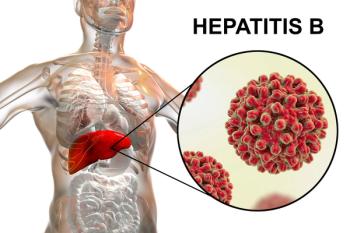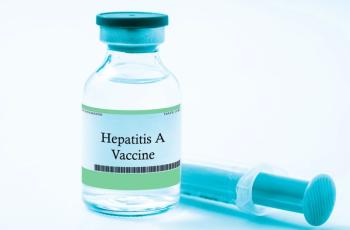
Biden’s Hepatitis C Proposal: Not Modest and Far From Certain
The administration unveiled the $11 billion plan in March. Now the hard part: Getting Congress to fund it.
Almost a decade after the first direct-acting hepatitis C therapy hit the market, the medications are not reaching a “significant fraction” of the estimated 2.4 million people in the U.S. with the chronic infection.
To reduce that number, the Biden administration included a five-year, $11 billion program to eliminate hepatitis C in its 2024 fiscal year budget proposal, which was released in March.
The administration’s proposal comes seven years after the World Health Organization launched its global hepatitis strategy that aims to reduce new hepatitis infections by 90% and deaths by 65% by 2030.
“More than 15,000 U.S. resident die of hepatitis C every year unnecessarily,” Francis S. Collins, M.D., PhD, former head of the National Institutes of Health, wrote in an
As described by Collins and Fleurence, the program would have three priorities: accelerating the availability of point-of-care diagnostic tests, providing access to the curative hepatitis C antivirals and increased awareness and testing, including support for universal testing.
The hepatitis C antivirals include
Although the price of the hepatitis C antivirals has dropped considerably, the drugs still loom as a large expenditure for payers, especially Medicaid programs, with lists prices that bring the cost (at list price) into the neighborhood of about $20,000 per course of treatment. For many people, a single course can rid them of the infection.
Whether the Biden hepatitis C plan, or even an approximation of it, will ever come to pass is long ways from certain. Congress, including a Republican-controlled House, would have to supply the funds.
In 2021, the WHO estimated that more than 58 million people were infected with the hepatitis C virus (HCV), which can develop into a chronic infection and, in severe cases, lead to cirrhosis and cancer.
The CDC reports that the incidence of acute HCV has witnessed a 124% increase since 2013. In 2020, the CDC reported there were 4,798 new cases of acute HCV and 107,300 newly reported cases of chronic HCV. The agency also estimated there were 66,700 acute HCV infections. Almost two-thirds (64%) of newly reported chronic HCV were among men.
The largest increase in acute HCV has been among 20-39-year-olds, with the highest infection rate among American Indians and Alaska Native persons.The CDC reports that American Indian and Alaska Native populations had the highest rate overall of newly reported HCV, 66.8 cases per 100,000 people.
“Curative treatment stops transmission, prevents liver cancer and liver failure, and saves lives,” Collins wrote. “It is even likely to be cost saving, by avoiding medical treatments for liver failure and liver cancer.”
If approved, the program would expand screening, testing, treatment, prevention, and monitoring of HCV infections by focusing on populations at the greatest risk. It would accelerate the availability of point-of-care diagnostic tests and screening. It would also provide broad access to curative HCV medications, particularly for people who are currently underserved, including Medicaid beneficiaries, people in the criminal-justice system, those without insurance, and American Indian and Alaska Native populations.
The program would include a comprehensive public health effort to engage, inform, identify, and treat people with HCV, as well as support grassroots organizations and community partners to build trust and help more people to seek testing and care.
“Congressional support can make possible a historic public health initiative that can prevent suffering, save lives, and ultimately save money, to the benefit of all US residents,” Collins and Fleurence concluded in their JAMA opinion article. “How can we not do this?”
Newsletter
Get the latest industry news, event updates, and more from Managed healthcare Executive.























